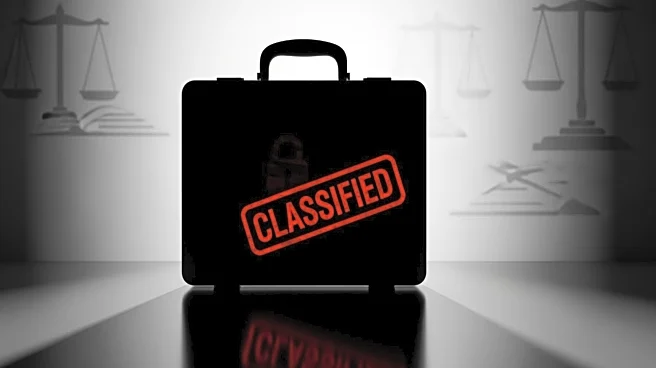What's Happening?
John Bolton, former national security advisor under President Trump, has been indicted by a federal grand jury in Maryland on charges of mishandling classified information. The indictment includes 18 counts
related to the unlawful transmission and retention of national defense information. Bolton allegedly used personal email and messaging apps to share diary notes about his activities as national security advisor, which were later hacked by a cyber actor believed to be associated with Iran.
Why It's Important?
The indictment of Bolton is part of a broader pattern of legal actions against former Trump administration officials and critics. It raises questions about the selective prosecution of political figures and the handling of classified information. The case could have significant implications for the legal and political landscape, affecting perceptions of justice and accountability within the U.S. government.
What's Next?
Bolton has pleaded not guilty and plans to fight the charges, potentially citing selective prosecution. The case will be overseen by Judge Theodore Chuang, and Bolton's defense will likely focus on proving the legality of his actions. The outcome could influence future legal proceedings against political figures and impact the Trump administration's approach to handling classified information.
Beyond the Headlines
The case highlights the ethical and legal challenges of managing classified information in the digital age, where personal communication tools can inadvertently compromise national security. It also underscores the political tensions within the U.S. government, as former officials face legal scrutiny for actions taken during their tenure.











